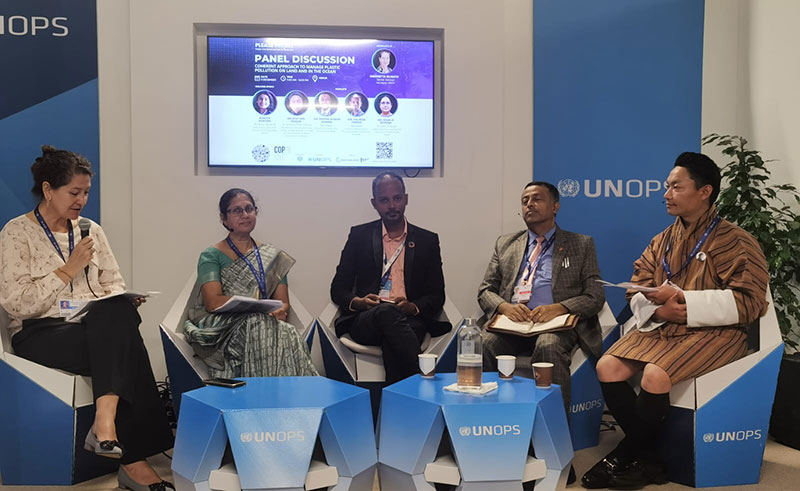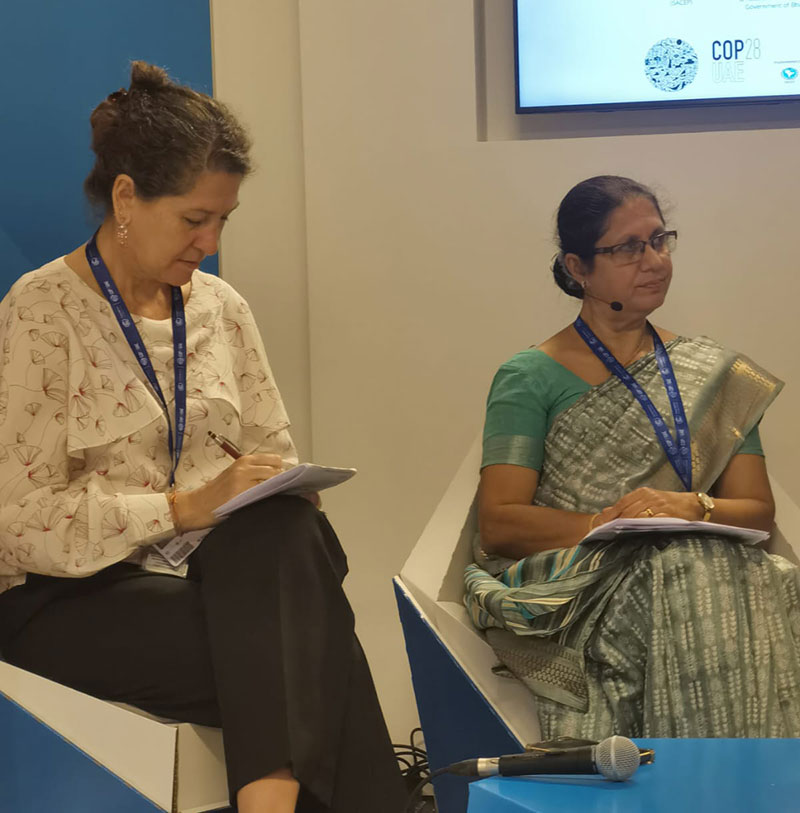December 12, 2023

The event held on Saturday, 9 December 2023, at the UNOPS Pavilion in Expo City, Dubai, was a significant milestone in the global effort to combat plastic pollution. The panel discussion, titled "Coherent Approach to Manage Plastic Pollution on Land and in the Ocean," brought together a diverse assembly of four representatives. The intergovernmental negotiating committee (INC), initiated by the United Nations Environment Assembly (UNEA) Resolution 5/14, undertook the critical task of developing an international legally binding instrument on plastic pollution.
The welcome speech was delivered by Ms. Rokeya Khaton, Director General of South Asia Corporative environment programme (SACEP). Moderated by Simonetta Siligato, Senior Advisor at UNOPS Asia Region, the session delved into the intricacies of plastic waste governance, emphasizing a comprehensive approach covering the entire life cycle of plastic.
The session was featured with esteemed panelists; Mrs. Anjalie Deveraja, Project Director of the PLEASE Project at the South Asia Co-operative Environment Programme, Mr. Rinchen Penjor, Senior Environment Officer from Bhutan, Dr. Deepak Kumar Kharal, Secretary at the Ministry of Forests & Environment in Nepal, and Mr Palinda Perera, Specialist at Rockland Distilleries (Pvt) Ltd in Sri Lanka. The session was marked by insightful discussions. Each panelist shared their invaluable experiences and projects, contributing to the overall visibility of initiatives aimed at addressing environmental challenges. Their diverse perspectives and expertise added depth to the discourse, fostering a collaborative environment that emphasized the importance of sharing knowledge and best practices in the pursuit of sustainable solutions for environmental issues in the South Asian region
Environment Programme Representatives from SACEP and SACEP Member States shared unique national experiences and strategies, reflecting on existing initiatives in the region and the outcomes of INC-3. Discussions ranged from effective waste management systems to innovative policies aimed at reducing plastic production and consumption. The event underscored the urgent need for harmonized legislative frameworks, increased public-private partnerships, and community engagement, all rooted in the principle of shared responsibility. This collaborative effort aims to formulate a holistic and actionable plan to address the plastic pollution crisis and safeguard terrestrial and marine ecosystems from the impacts of plastic waste

